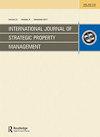尼日利亚上市食品和饮料公司的公司治理和税前净利润
IF 2
4区 管理学
Q3 MANAGEMENT
International Journal of Strategic Property Management
Pub Date : 2023-06-13
DOI:10.53819/81018102t4155
引用次数: 0
摘要
食品和饮料工业对人类的生存至关重要,因为它提供了生存所必需的食物和营养。该行业涵盖范围广泛的活动,包括食品和饮料的生产、加工、包装、分销和消费。尽管它很重要,但研究表明,上市食品和饮料公司面临着保持税前净利润的斗争,这可能是由于公司治理薄弱(所有权结构、董事会组成、董事会多样性、首席执行官任期和董事会规模)。因此,本研究调查了公司治理对尼日利亚上市食品和饮料公司每股收益的影响。本研究采用事后研究设计。该研究的对象是截至2021年12月31日在尼日利亚交易所上市的21家食品和饮料公司。本研究采用有目的抽样技术,根据上市年份和数据可得性选择14家上市食品饮料公司的样本量。研究中使用的数据是从样本公司2014年至2021年经审计的年度财务报表中提取的。在10%显著性水平下,采用描述性和推理性(多元回归)统计分析数据。研究发现,公司治理对税前净利润有显著影响(Adj.R2 = 0.23, F (5,106) = 6.54, p < 0.10)。研究得出结论,公司治理提高了尼日利亚上市食品和饮料公司的资产回报率。该研究建议,食品和饮料公司应确保董事会的独立性在任何时候都得到认可和加强,以确保改善财务业绩和确保资产回报。关键词:公司治理,税前净利润,餐饮企业本文章由计算机程序翻译,如有差异,请以英文原文为准。
Corporate Governance and Net Profit Before Tax of Quoted Food and Beverage Firms in Nigeria
The food and beverage industry is crucial to human existence as it provides sustenance and nutrition necessary for survival. The industry encompasses a wide range of activities, including the production, processing, packaging, distribution, and consumption of food and beverages. Despite its importance, studies have shown that quoted food and beverage firms are faced with the struggle to maintain substantial level of net profit before tax which are likely due to weak corporate governance (ownership structure, board composition, board diversity, CEO tenure, and board size). This study therefore, investigated the effect of corporate governance on earning per share of quoted food and beverage firms in Nigeria. The study adopted ex-post facto research design. The population of the study was 21 food and beverage firms quoted on Nigerian Exchange as at December 31st, 2021. The study used purposive sampling technique to choose the sample size of 14 quoted food and beverage firms based on the years of listing and data availability. The data used for the study were extracted from the audited annual financial statement of the sampled firms from 2014 to 2021. Descriptive and inferential (multiple regression) statistics were used to analyse the data at 10% significance level. Findings revealed that corporate governance had significant effect on net profit before tax (Adj.R2 = 0.23, F (5, 106) = 6.54, p < 0.10). The study concluded that corporate governance enhanced return on asset of quoted food and beverage firms in Nigeria. The study recommended that food and beverage firms should ensure the independence of the board is embraced and enhanced at all times to ensure improved financial performance and ensure returns on asset. Key words: Corporate Governance, Net Profit before Tax, Food and Beverage Firms
求助全文
通过发布文献求助,成功后即可免费获取论文全文。
去求助
来源期刊
CiteScore
4.00
自引率
18.50%
发文量
23
审稿时长
15 weeks
期刊介绍:
International Journal of Strategic Property Management is a peer-reviewed, interdisciplinary journal which publishes original research papers. The journal provides a forum for discussion and debate relating to all areas of strategic property management. Topics include, but are not limited to, the following: asset management, facilities management, property policy, budgeting and financial controls, enhancing residential property value, marketing and leasing, risk management, real estate valuation and investment, innovations in residential management, housing finance, sustainability and housing development, applications, etc.

 求助内容:
求助内容: 应助结果提醒方式:
应助结果提醒方式:


